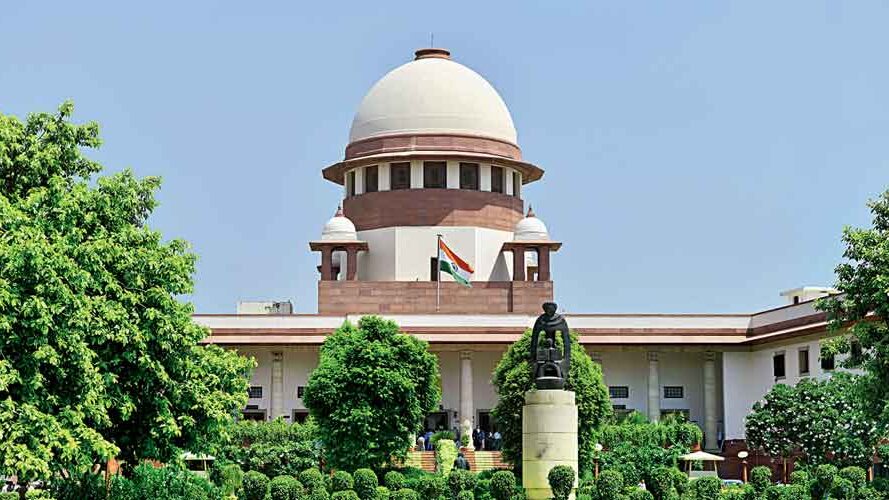Dev Datt Kamat, the lawyer, arguing on behalf of the petitioners, said, “Nobody is undressing in a school.”

New Delhi: “You can’t take it to illogical ends. Right to dress will include right to undress also?” asked Justice Hemant Gupta of the Supreme Court on Wednesday. The court was hearing arguments on the right to wear hijab at education institutes.
Dev Datt Kamat, the lawyer, arguing on behalf of the petitioners, said, “Nobody is undressing in a school.”
The remark was a part of a longer exchange between Kamat and the court when Justice Gupta also said, “Problem here is that one particular community is insisting on a headscarf (hijab) while all other communities are following the dress code. Students of other communities are not saying we want to wear this and that.”
On Kamat’s rebuttal that many students wear rudraksh or a cross or some religious symbol, Justice Gupta said, “That is worn inside the shirt. Nobody is going to lift the shirt and see if someone is wearing rudraksh.”
The exchange took place while the court was hearing arguments on pleas challenging the Karnataka High Court order refusing to lift the ban on hijabs in educational institutions.
On Monday, the bench, which also comprised Justice Sudhanshu Dhulia, said, “You may have a religious right to practise whatever you want to practise. But can you practise and take that right to a school which has uniform as a part of dress you have to wear? That will be the question.”
Responding to whether wearing hijabs is an essential practice under the Article 25 of the Constitution, the court had said, “The issue can be modulated little bit in a different way. It may be essential, it may not be essential.”
In the previous hearing, the bench had observed, “What we are saying is whether in a government institution you can insist on carrying your religious practice. Because the Preamble says ours is a secular country.”
Around January this year, Karnataka saw massive protests against PU colleges barring female students wearing hijabs. After a few students started to protest, it soon turned into a statewide protest and later snowballed into a national issue.
Meanwhile, the state BJP government justified the ban under its 1983 Education Act.
